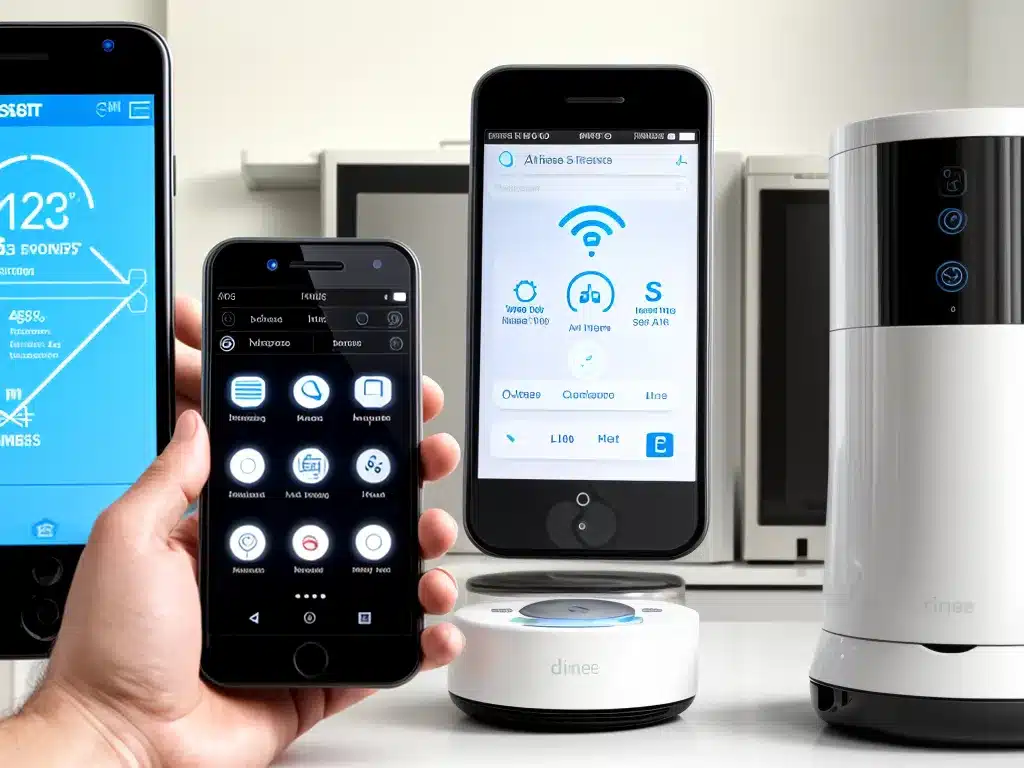
Introduction
The past decade has seen an explosion in smart home devices and appliances. From smart speakers and thermostats to refrigerators and vacuums, more and more of our home appliances are getting “smarter” by connecting to the internet and gaining capabilities like voice control. This rise of smart appliances has led many to wonder – do these devices need their own operating systems? In this article, I’ll explore the evolution of smart appliances, the benefits and challenges of developing proprietary operating systems, and provide an in-depth look at the current smart appliance OS landscape.
The Evolution of Smart Appliances
While the idea of smart appliances has been around for decades, the technology only recently became mainstream. The smart home revolution really took off with the emergence of intelligent voice assistants like Amazon Alexa and Google Assistant. By providing a centralized voice control hub, these virtual assistants enabled easy control of internet-connected devices.
This helped overcome one of the biggest hurdles for smart appliance adoption – complexity. Early smart devices required custom apps to control each appliance, creating a fragmented and confusing experience. With a unified voice assistant, users could simply speak commands to control appliances across brands.
The market responded enthusiastically. Once consumers got a taste of controlling appliances by voice, demand grew for more smart capabilities. Between 2016 and 2022, global smart appliance sales grew over 600% to over $44 billion. Every appliance category from refrigerators to washing machines saw smart models emerge.
The Benefits of a Proprietary OS
With smart capabilities in such high demand, appliance makers have invested heavily in technology. For some, this has included developing entire operating systems tailored specifically for their products. Proprietary software offers appliance makers more control over the user experience and product capabilities. Here are some of the benefits of creating a custom OS:
-
Seamless integration: With their own OS, brands can ensure smoother integration between the appliance, sensors, controls, and companion apps. Everything is designed to work together, avoiding compatibility issues.
-
Differentiation: A unique OS allows brands to differentiate their appliances with exclusive features and capabilities. This can provide a competitive advantage.
-
Data control: A proprietary OS puts appliance makers fully in control of data collection and analytics. This allows them to optimize performance and personalization while keeping data private.
-
Security: With a custom OS, brands can build security into the core system. This provides more protection against cyber threats compared to open-source platforms.
-
Innovation: Appliance makers can innovate faster by tailoring the OS specifically for their products versus relying on a generic platform. New features can be directly integrated into the OS.
Challenges of Developing a Smart Appliance OS
However, developing a proprietary appliance OS also comes with substantial challenges and risks:
-
High development costs: Building an operating system from scratch requires massive investments in software development and ongoing maintenance. Only large companies can take this on.
-
No ecosystem support: Unlike widely adopted OSes like Android, custom appliance operating systems lack third-party apps and external developer support.
-
Fragmentation: Many brands creating their own smart appliance OSes leads to a fragmented market. This makes it harder for platforms like Alexa to maintain broad compatibility.
-
Limited scope: An OS dedicated just for appliances has limited scope compared to versatile platforms designed for many device types. This can hinder innovation.
-
Consumer buy-in: Users need to be convinced to learn and adapt to proprietary branded platforms rather than relying on familiar universal OSes like iOS. This can hamper adoption.
The Smart Appliance OS Landscape
Currently, the smart appliance operating system market is split between proprietary OSes and more widely used IoT platforms. Here are some of the major appliance OS players:
Proprietary Appliance Operating Systems
-
Samsung SmartThings: Originally an independent company, SmartThings was acquired by Samsung in 2014. The SmartThings OS powers Samsung’s extensive lineup of smart appliances and is one of the most mature and developed appliance OSes.
-
Bosch Home Connect: Bosch has invested heavily in its Home Connect OS, which is built into all their smart appliance models. It provides broad compatibility with digital assistants.
-
Miele SmartControl: Miele’s SmartControl OS enables voice control, automation, and integration exclusively for their brand appliances. It is tailored specifically for their high-end kitchen and laundry products.
-
LG ThinQ: ThinQ is LG’s proprietary smart appliance OS powering features like voice recognition and AI-powered diagnostics across their appliance lineup.
-
Whirlpool Sixth Sense Live: Whirlpool uses this dedicated OS to enable cloud connectivity and voice control for their smart appliance portfolio.
Multi-Purpose IoT Platforms
-
Android Things: Google’s stripped-down version of Android for IoT devices provides a more open smart appliance OS option. It offers broad ecosystem support but less customization for specific appliances.
-
Alexa Smart Properties: Amazon’s proprietary service enables appliance makers to directly integrate with Alexa. It offers voice control without needing to build their own OS. But it provides less differentiation from competitors.
-
HomeKit: Apple’s HomeKit is a multi-purpose home automation framework used by some smart appliance makers to integrate Siri voice control into products.
Do Smart Appliances Need Their Own OS?
Whether smart appliances benefit more from proprietary or universal operating systems is still an open question. A custom OS allows for tighter integration and competitive differentiation. But universal platforms enable broader third-party innovation and compatibility.
Ultimately, having options is a good thing for consumers. The ideal smart home likely includes both tightly integrated proprietary appliances and more flexible devices powered by multi-use OSes. As the smart appliance space continues to evolve, we will see if dedicated operating systems or platforms like Alexa and HomeKit gain more dominance. But for high-end appliance makers looking to stand out, investing in tailored software seems here to stay.












